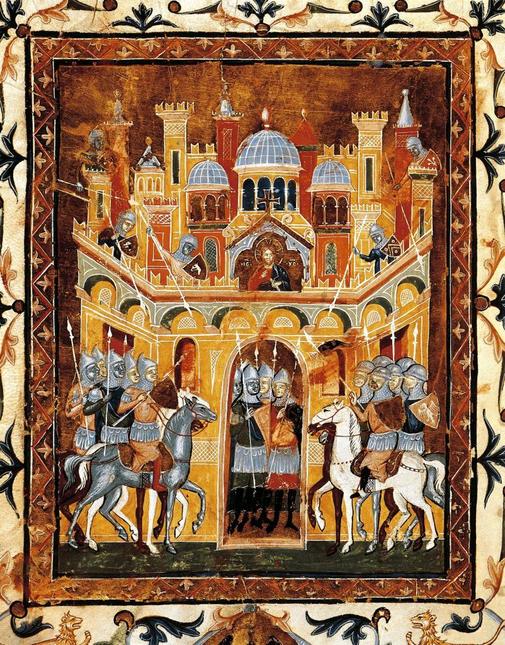In the eleventh century a vast Christian army, summoned to the holy war by the Pope, razed the Muslim world of the eastern Mediterranean, seizing Jerusalem, a city revered by both religions. Violence and religious propaganda head the Crusades. A new history of the war for the Holy Land (Attic of the books) an account of the historian Thomas Asbridge that analyzes one of the most controversial times of the Middle Ages.
"There is not enough evidence to prove that Muslims were really persecuting Christians," says Asbridge about the struggle that Islam and the West held for the dominion of the Holy Land. A succession of chilling wars that were divided into eight chapters between 1095 and 1291 and that, according to the author, were "a conflict of attack of the West and not of defense": "If there had been a real threat it would have been in the Iberian Peninsula, where the Muslims were. The crusades were a necessity of the West, "he concludes.
Medieval history expert Thomas Asbridge (United Kingdom, 1969) is considered the highest authority to talk about the crusades . He has dedicated his entire life to research and writing books about this event, such as The Crusades: The War for the Holy Land (2012) and The First Crusade: a New History (2004). His last book, The Crusades. A new history of the war for the Holy Land , condenses in a single volume the Muslim and Christian version. Take the reader by the hand between historical events to understand their origin, whose backbone is the Third Crusade.
The repercussions of the crusades, according to Asbridge, "are lived to this day," especially in how religious wars spread. This historical moment "did not originate the conception of defending religion, that already existed before. What changed was the idea of achieving spiritual rewards for fulfilling some objective of war that had a violent charge behind," says the author.
In addition, it highlights that both Christians and Muslims lived before and after the conflicts . "Both religions, from a different perspective, live a kind of manipulation. The interesting thing and in what I think made a difference is that the crusades began with an amazing victory of the Catholic Church that nobody expected: conquering Jerusalem was something they did not expect The conception of this triumph created a powerful image that they tried to replicate and which they failed to achieve.From the Muslim perspective it is clear that, from the beginning, their relationship with religion and faith was deeper than what Christians had. a much more direct faith and had more to do with welfare than with war. "
The historian stops with special emphasis on two icons that marked the Third Crusade: Ricardo Corazon de León and Saladino . "They are two characters that interest people very much, especially since myths began to be built after his death," he says. "Ricardo had a very narcissistic view of life, it was the paradigm of the knight of the Middle Ages. For him the important thing was his reputation. And I think that is one of the reasons why he points to the crusades and he had to face to the Muslim leader (Saladin), who was a skilled negotiator, "he says.
Asbridge spent six years writing his book, taking special care not to be a prisoner of a unique approach and not falling into stereotypes, trying to make an objective balance of what the crusades really meant for humanity. "They have a positive side and a negative side. The crusades show the darkest side of humanity, to what point of cruelty human beings can get and how people in power use the idea of differences between them to instigating the conflict, which both Muslims and Christians have used in their battles, on the other, in a more positive way: shortly after, when the Christians settled in Levante, they had very good relations with the Muslims who lived there weaving good relations military and commercial. "
Thomas Asbridge fell in love with the crusades when he was 16 and since then they have been part of his daily life. "The crusades are a perfect example of how people from different cultures relate and that shapes us as human," says Asbridge, who concludes that "religion has not given peace to mankind, but rather the opposite."
According to the criteria of The Trust Project
Know more- culture
- history
- Religion
- literature
Chernobyl history: man is more dangerous than uranium
LiteratureRenia Spiegel, the Polish Anne Frank: teenager, poet and author of another newspaper
Magical Galicia The Menhirs of Time

